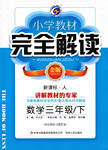题目内容
If you have ever gone through a toll booth(收费所), you know that your relationship to the person in the booth is not the most intimate you'll ever have. It is one of life's frequent affairs: You hand over some money; you might get change; you drive off.
Late one morning in 1984, headed for lunch in San Francisco, I drove toward a booth. I heard loud music. It sounded like a party. I looked around. No other cars with their windows open. No sound trucks. I looked at the toll booth. Inside it, the man was dancing.
"What are you doing?" I asked.
"I'm having a party," he said.
"What about the rest of the people?" I looked at the other toll booths.
He said, "What do those look like to you?" He pointed down the row of toll booths.
"They look like……toll booths. What do they look like to you?"
He said, "Vertical coffins. At 8:30 every morning, live people get in. Then they die for eight hours. At 4:30, like Lazarus from the dead, they reemerge and go home. For eight hours, brain is on hold, dead on the job. Going through the motions."
I was amazed. This guy had developed a philosophy, a mythology about his job. Sixteen people dead on the job, and the seventeenth, in precisely the same situation, figures out a way to live. I could not help asking the next question: "Why is it different for you? You're having a good time."
He looked at me. "I knew you were going to ask that. I don't understand why anybody would think my job is boring. I have a corner office, glass on all sides. I can see the Golden Gate, San Francisco, and the Berkeley hills. Half the Western world vacations here……and I just stroll in every day and practice dancing."
1.According to the first paragraph, in most cases, how do you describe the relationship between drivers and toll booth?
A.most intimate B.very tense C.pretty ordinary D.extremely hostile
2.Why did the author go to San Francisco?
A. To attend a party
B. B. To have a meal
C. To dance with the worker in the toll booth
D. To hand in the repair fee of his car
3.The underlined name “Lazarus” mentioned in the eighth paragraph probably refers to a person___________.
A. who was very active in his life
B. B. who was dead and revived from death
C. who was going to San Francisco
D. who liked dancing at work
4.According to the passage, which of the following statements is true?
A.The author passed by the toll booth every day.
B.The worker enjoyed his work very much.
C.Only western people like to spend their holidays in the Berkeley hills.
D.The dancing worker was getting badly along with his colleagues.
5.After hearing what the worker said, the author would probably_________.
A.go to the worker’s senior to complain about his bad attitude towards job.
B.go climbing the Golden Gate and the Berkeley hills to have a vacation.
C.learn to take a positive attitude to job and appreciate valuable things in life.
D.go back home instead of wasting time traveling to San Francisco.
1.C
2.B
3.B
4.B
5.C
【解析】
试题分析:本文叙述了作者经过收费战时,看见特别引人瞩目的一个收费站的工作人员,他在工作时还在不断地跳舞,他把他们的工作室收费亭看成直立的棺材,他的同事每早八点半,活的人进去。然后他们死亡八个小时。下午四点半,就像死人中的拉撒路,他们复活回到家中。整整八个小时,头脑思维中断,他们只是呆板地工作,重复着相同的动作。而这位工作人员几乎处于同样的情况,却找到另外一种生活方式。
1.细节理解题。根据you know that your relationship to the person in the booth is not the most intimate you'll ever have.你就会知道你与亭子里的这个人关系不是最亲密的,这是生命中经常出现的非偶遇者。故选C。
2.细节理解题。根据Late one morning in 1984, headed for lunch in San Francisco我驱车往旧金山吃午饭,故选B。
3.细节理解题。根据Then they die for eight hours. from the dead, they reemerge and go home. 然后他们死亡八个小时。下午四点半,就像死人中的拉撒路,他们复活回到家中。故选B。
4.细节理解题。根据I don't understand why anybody would think my job is boring. I have a corner office, glass on all sides. I can see the Golden Gate, San Francisco, and the Berkeley hills. Half the Western world vacations here……and I just stroll in every day and practice dancing."故选B。
5.推理判断题。根据This guy had developed a philosophy, a mythology about his job.这个小伙子发展了一种哲学,创造了一个有关工作的神话,故选C。
考点:人生百味类短文阅读。
点评:推理判断题属于主观题,是层次较高的题目。它包括判断和推理题。这两类题常常相互依存,推理是为了做出正确的判断,正确的判断又依赖于合乎逻辑的推理。该题要求在理解表面文字的基础上做出判断和推论,从而得到文章的隐含意思和深层意思,也就是通过文章中的文字信息,上下逻辑关系及事物的发展变化等已知信息,推断出作者没有直接表达的态度和观点。

 步步高口算题卡系列答案
步步高口算题卡系列答案 点睛新教材全能解读系列答案
点睛新教材全能解读系列答案 小学教材完全解读系列答案
小学教材完全解读系列答案Different people use different languages. We Chinese speak Chinese, and, most of us are learning a foreign language. But there is another kind of language we need to know --- the language of the body.
All over the world, people “talk with their hand, with their heads and with their eyes.” When Japanese people meet, they bow. When Indians meet, they put their hands together. What do American and British do? Americans are more imformal(不拘小节的) than the British. They like to be friendly. They use first names, they ask questions and they talk easily about themselves. When they sit down, they like to relax in their chairs and make themselves comfortable. British people are more reserved(保守的). They take more time to make friends. They like to know you before they ask your name.
When British or American people meet someone for the first time, they shake hands. They do not usually shake hands with people they know well. Women sometimes kiss their women friends, and men kiss women friends (on one cheek only). When a man meets a man, he just smiles, and says, “Hello.” Men do not kiss each other, or hold hands. Even fathers and sons do not often kiss each other.
【小题1】In the passsage, the writer thinks that body language is ______________.
| A.uselss | B.difficult | C.quite easy | D.important |
| A.different countries hav the same body language. |
| B.different countries have different body anguages. |
| C.people in Asia share the same body language. |
| D.many people only use their body language. |
| A.sit straight | B.never sits down | C.makes fun of you | D.sits freely |
| A.imopssible | B.too easy | C.too difficult | D.slow |
| A.men | B.women | C.British | D.Americans |